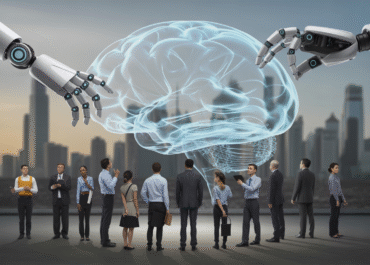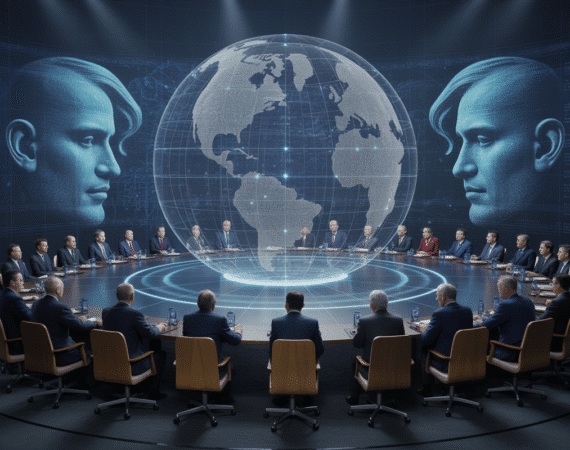Intersectoral and International Collaboration in AI: A Global Imperative
Artificial Intelligence (AI) is rapidly reshaping our world, offering unprecedented opportunities for innovation and societal advancement. However, its full potential, and indeed its responsible evolution, can only be realized through concerted, widespread effort. Specifically, robust intersectoral and international collaboration is not merely beneficial; it’s an absolute imperative for navigating the complexities and maximizing the societal benefits of AI.
Addressing Global Challenges with Collective Intelligence
AI offers powerful tools for tackling some of humanity’s most pressing issues, from climate change and disease outbreaks to poverty reduction and disaster response. Yet, these challenges are inherently global and multidisciplinary. A health crisis in one country impacts others; climate change respects no borders. Effective AI solutions therefore demand data, expertise, and perspectives from diverse scientific fields, governments, non-governmental organizations (NGOs), and industries across different nations. Without such cooperation, AI’s capacity to deliver impactful solutions remains fragmented and limited, incapable of addressing the systemic nature of these global problems.
Fostering Inclusive and Ethical AI Development
The development of AI systems is not value-neutral. Biases embedded in data can lead to discriminatory outcomes, and ethical considerations around privacy, accountability, and control are paramount. Intersectoral collaboration brings together technologists, ethicists, legal experts, policymakers, and diverse community representatives, ensuring a broader range of perspectives are considered during the design and deployment phases. Internationally, this cooperation can help establish shared ethical frameworks, responsible AI principles, and common regulatory approaches, preventing a ‘race to the bottom’ or a fragmented global AI landscape where different regions operate under disparate ethical standards.
Ensuring Comprehensive and Integrated Solutions
AI solutions rarely operate in isolation. They need to be seamlessly integrated into existing societal structures, legal frameworks, and industry practices to be truly effective. Intersectoral collaboration facilitates this integration, allowing for the co-creation of solutions that are not only technologically sound but also practical, scalable, and adaptable to real-world contexts. For instance, developing AI for smart cities requires input from urban planners, energy experts, transportation authorities, and public safety officials. International collaboration, in turn, allows for the sharing of best practices and scalable models, accelerating the adoption of effective AI-powered solutions worldwide.
Promoting Research and Policy Alignment
The rapid pace of AI innovation necessitates continuous research and adaptive policymaking. International collaboration in research allows for the pooling of resources, sharing of breakthroughs, and joint development of fundamental AI technologies, driving innovation forward collectively. On the policy front, cross-border dialogue is crucial to address complex issues like data governance, intellectual property rights, and various AI governance models. Harmonizing regulations and standards globally can foster innovation, reduce barriers to trade, and ensure AI systems are developed and deployed responsibly across different jurisdictions, creating a more predictable and trustworthy environment.
Accessibility and Shared Benefits: AI for All
For AI to truly benefit all of society, its advancements must be accessible and its advantages widely distributed. Intersectoral and international collaboration can facilitate crucial capacity building in developing nations, provide equitable access to AI education and infrastructure, and promote open-source AI initiatives. This ensures that the benefits of AI are not concentrated in a few regions or sectors but contribute broadly to global sustainable development goals, fostering digital inclusion and significantly reducing the technological divide between nations.
The future of AI is intrinsically linked to our collective ability to collaborate effectively. By transcending traditional silos between sectors and national borders, we can harness AI’s transformative power to address complex global challenges, ensure its development is ethical and inclusive, foster comprehensive solutions, and align research with robust policy frameworks. This concerted effort is not just about advancing technology; it’s about building a more equitable, resilient, and prosperous future for everyone on our planet.


